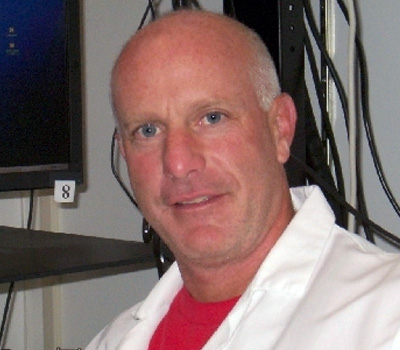New treatments for eliminating metastatic cancer
To end cancer, we must learn how to stop the spread of cancer. Cancer is extremely lethal because toxic cancer cells leave the primary tumor site and spread to vital organs like the liver, lungs, and brain. No antidote exists to prevent "metastatic" cancer cells from scattering within the human body. Cell metastasis disrupts normal organ functions and remains the leading cause of death in cancer patients worldwide. To save countless lives, we must sever the "Achilles' heel" of cancer by developing new treatments that can rid the body of metastatic cells. Dr. Richard Klemke, professor of Pathology at University of California, San Diego's department of Pathology and Moores Cancer Center, has unlocked newfound insights and concepts that explain how metastatic cancer cells spread through the body. His pioneering work is leading the charge to develop novel therapeutics and effective treatments to combat metastatic cells and cure this dismal disease
- Unlike humans and other mammals, chicken and zebrafish tissues are relatively transparent. This amazing feature provides a clear window to view human tumor cell movement in the body with incredible clarity and resolution. Dr. Klemke and his team of researchers pioneered the use of unique animal models to visualize how metastatic tumor cells move through blood vessels, tissues, and various organs of the body or react to anti-metastatic agents.
- Dr. Klemke's experiments have led to the design and use of novel therapeutics for treating a primary tumor as well as metastatic disease. In collaboration with leading medicinal and natural compound chemists at University of California, San Diego and in the private sector, several lead compounds (phytochemicals) and natural treatments have been identified that show great promise.
- Dr. Klemke's research has also pioneered new methods for identifying unique protein signatures of metastatic cells with biomarkers. Current work indicates that many of the identified biomarkers have the ability to migrate through tissues, survive in foreign organs, and resist conventional drug treatments. These biomarkers are being used to detect metastatic cells in the body and to evaluate the efficacy of exploratory anti-metastatic agents.
8.2 million people will die from cancer worldwide this year. More than 80% of these people will die from metastatic complications. Dr. Klemke believes that cancer can be truly eradicated, and lives spared, if we spend more resources studying how these dangerous cancer cells spread through the body. According to Klemke, the key to unlocking revolutionary cancer treatments lies within knowing more about the unique behaviors of these cancerous cells, so we can design better therapeutics to target them.
Bio
Dr. Klemke received his B.S. degree in Biology from Hardin-Simmons University in Abilene, Texas, his MS degree from the University of Tulsa, and his Ph.D. in Cell and Developmental Biology from Texas Tech University Health Sciences Center.
From 1993 - 1998, Dr. Klemke was a research associate at The Scripps Research Institute (TSRI), during which he defined his future career in cancer cell biology.
His publications as a post-doctoral fellow identified a number of major cell-signaling pathways that are involved in cell migration and cancer cell metastasis.
Working with Dr. David Cheresh, Dr. Klemke defined a concept in cell biology (involving subcellular compartmentalization of cell-signaling proteins in migrating and metastatic cells), which subsequently evolved into a major focus for Dr. Klemke as an independent investigator.
Dr. Klemke was promoted at TSRI to Assistant Professor in the Department of Immunology in 1998, and then to Associate Professor in 2003. He joined University of California, San Diego as Professor of Pathology in 2006.
In the News
All breast cancers are not created equal. Inflammatory breast cancer (IBC) is the deadliest form of the disease, with fewer than half of those diagnosed today having a five-year prognosis for survival
U.S. researchers have mapped thousands of neuronal proteins that are connected in complex signaling networks that control neuron function
Researchers at the University of California, San Diego (UCSD) School of Medicine have mapped thousands of neuronal proteins to discover how they connect into complex signaling networks that guide neuron function
Scientists have found a way to watch in real time as human cancer cells produce tumors that spread throughout the body of a living organism


